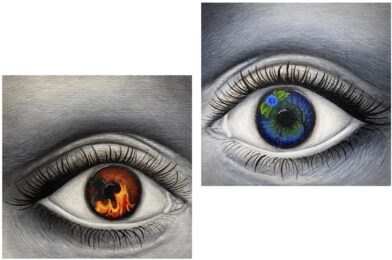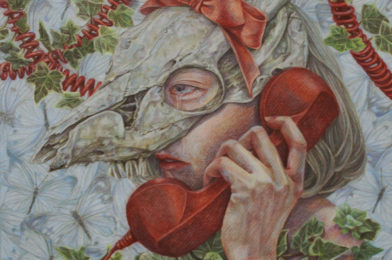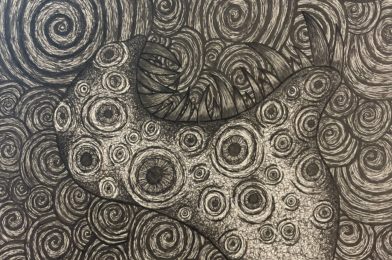And just like that, you’ve given yourself away for the third time.
You’ve revealed a little piece of yourself, burying what’s left of you a little deeper –– a little farther away from the beaming lights that flickered through the heart kaleidoscope you had as a child.
The angles that once lined up to reflect the colorful expanse before you have sharpened, creating darker images that make you uncertain whether you’re still staring at your brother’s blue handprint on the wall or something else entirely.
The speed at which the kaleidoscope turns astonishes you. One second you’re staring at an array of sunset-colored diamonds, the next a pool of blue stars. You reach out to grab them, hoping to grasp a morsel of beauty in your ragged hands, but each star slips through your fingers, landing in the hands of those with longer nails and ornate gloves that carry a grace and confidence you so clearly lack.
Jewels and gems can’t hide the solitude that surrounds you.
Your ears pick up the slamming footsteps in the outside hall but your mind is too obscured by the twist and turn of the kaleidoscope to notice the blue paint running under the door.
In your long and suitably uneventful life, the omnipresent kaleidoscope is removed only long enough for the splash of your brother’s thumbprint to become visible once more.
The lies spin as quickly as your fingers brush around the edges of the banged-up object.
“I love you. And nothing you do can ever change that.”
Ally Brunner is a high school junior from New York, NY. She enjoys playing sports, reading, and writing both prose and poetry.
Visual art by Sylvie Mizrahi



